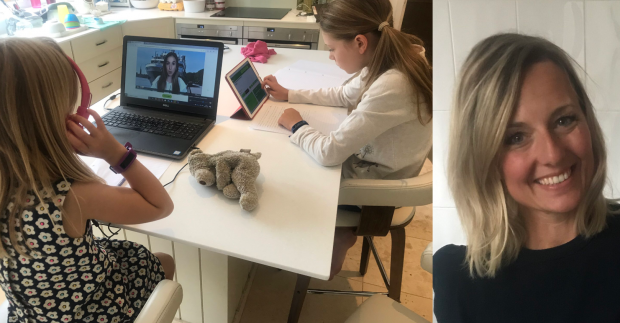
Emma Turner currently works part time as Research and CPD Lead for Discovery Schools Academy Trust MAT in Leicestershire. An advocate for flexible working, she reflects on what the sector can learn from the lockdown experience.
The coronavirus pandemic and the subsequent lockdown has taught us that nothing is impossible. There is no part of a school day which can’t actually be done remotely if required. Sure, it needs more than a little refining and ideally wouldn’t be done against the backdrop of a toddler breakfast time or a spouse’s zoom call (and probably with much better hair once the salons are back open). But it has shown us that all the systems and structures we once thought were set in stone were in actual fact a house of cards.
As we approach a new kind of normal, it would be foolish to think we have nothing to learn from the extraordinary lockdown experience. We have had a unique sector-wide glimpse into the work and home lives of colleagues at all levels and we now have a huge evidence base, albeit anecdotal, of how flexible working can be integrated into our system. Many of us now appreciate just how difficult it can be to get anything meaningful done when attempting to care for children or dependant adults at the same time. This highlights for leaders how systems can be streamlined, planned, and organised much more effectively to avoid the need for knee jerk and immediate responses.
This is the moment for flexible workers and leaders across the education sector to fly the flag for doing things differently. Professional trust is a cornerstone of developing a culture of flexible working across an organisation and working from home has proven that we, as a profession, can be trusted to get work done on time even when we’re not in school, and despite the impact of a global pandemic and juggling our own families’ needs during lockdown! It shows the need for a much greater degree of trust within the profession.
On the other side, the flexible worker also needs to be able to trust that their employer will ensure communication is full, timely, and well planned. Flexible workers need to be kept in the loop in a way that means they’re not constantly having to respond to things or complete work on days for which they are not paid. I learnt long ago that it is easy to be paid for a part time position but find yourself working full time hours. Communicating availability to colleagues via email signatures, out of office reminders, blocking out electronic diaries and changing voicemail greetings can go a long way to remind colleagues about your availability. Being strict with yourself is harder and will require support from managers and school leaders to help ring-fence your time.
Remote meetings during the COVID-19 lockdown have let colleagues attend whilst not having to be in the school building or listen to recordings at a later, more convenient time. The associated digital skills needed to share information much more effectively have also developed immensely during this time, and the digital fatigue felt by so many highlights the need for meetings to be far better organised, focused and prepared. Our newfound digital capability could be the death knell for many of the traditional face to face meetings.
The online revolution has also been a revelation within CPD. The provision of remote learning opportunities, the explosion of online networking events and the accessibility of online content from groups who traditionally put on conferences have meant that there has never been more access to CPD for all workers but especially flexible workers. The ability to dip in and out of sessions throughout a day of an online CPD event whilst still going about your life means that CPD can be integrated and targeted with precision. Although this does not replace the importance of face-to-face networking and the chance for professional conversation over coffee, it does provide access to ongoing professional development for all colleagues regardless of their contracted hours or position. This shift has been a powerful one during lockdown and one which has huge sector changing potential if we capitalise on it.
We may look back at the lockdown period as the point where approaches to flexible working suddenly shifted. When a system demonstrates it can accommodate huge change, then it is usually the right time for change to really happen. It would be all too easy to rush back to our version of normal for the familiarity it provides but if we are to grow as a profession, we should use our professional skills of reflection, evaluation and ingenuity to ditch much of the clunky organisational infrastructure of the past. Flexibility doesn’t mean a stretch or a strain on resources; flexibility means being agile, nimble, responsive, resilient and adaptable – and we teachers are surely the experts at this.
Looking for flexible working support?
To support school leaders to offer effective flexible working options, the DfE has published guidance, case studies, and resources. Schools can also access the interim results of a research project on flexible working in schools here. We will publish further support later in the year.
Want to receive blog posts in your inbox?
1 comment
Comment by Harvey Neve posted on
hear hear!